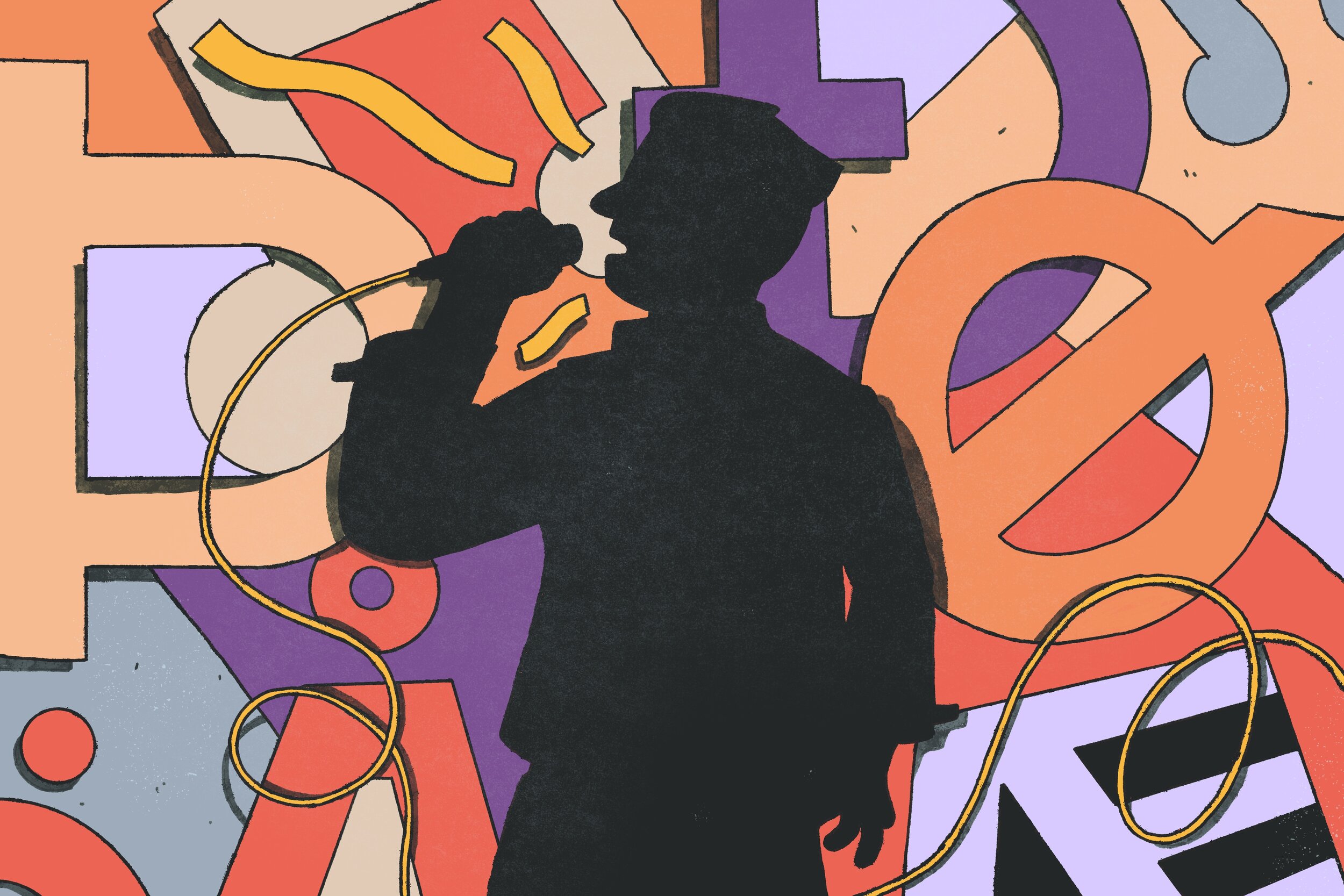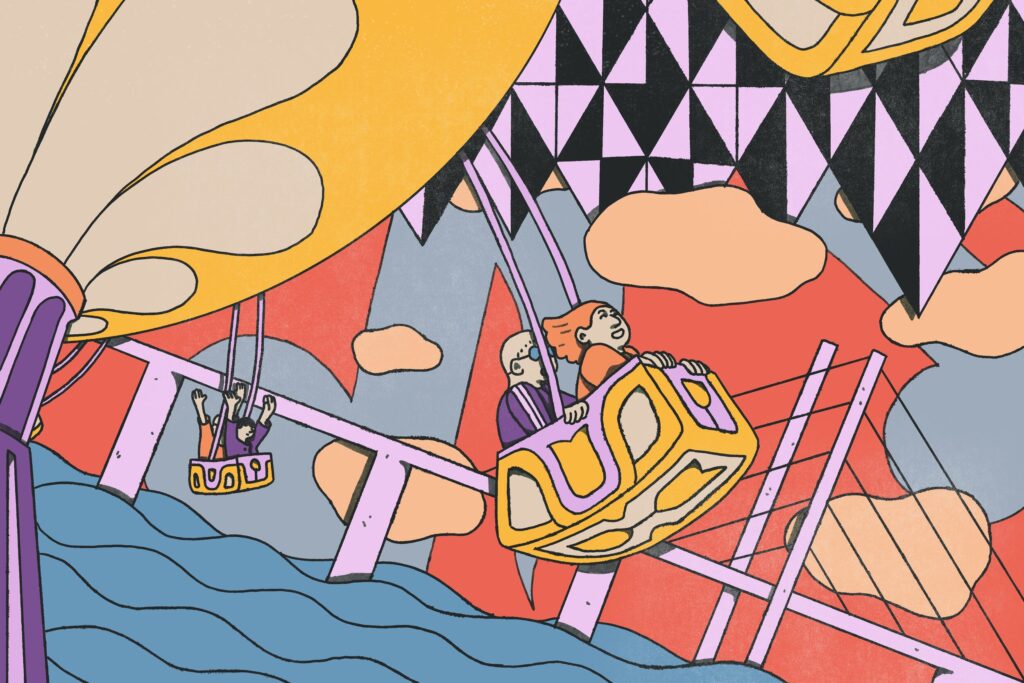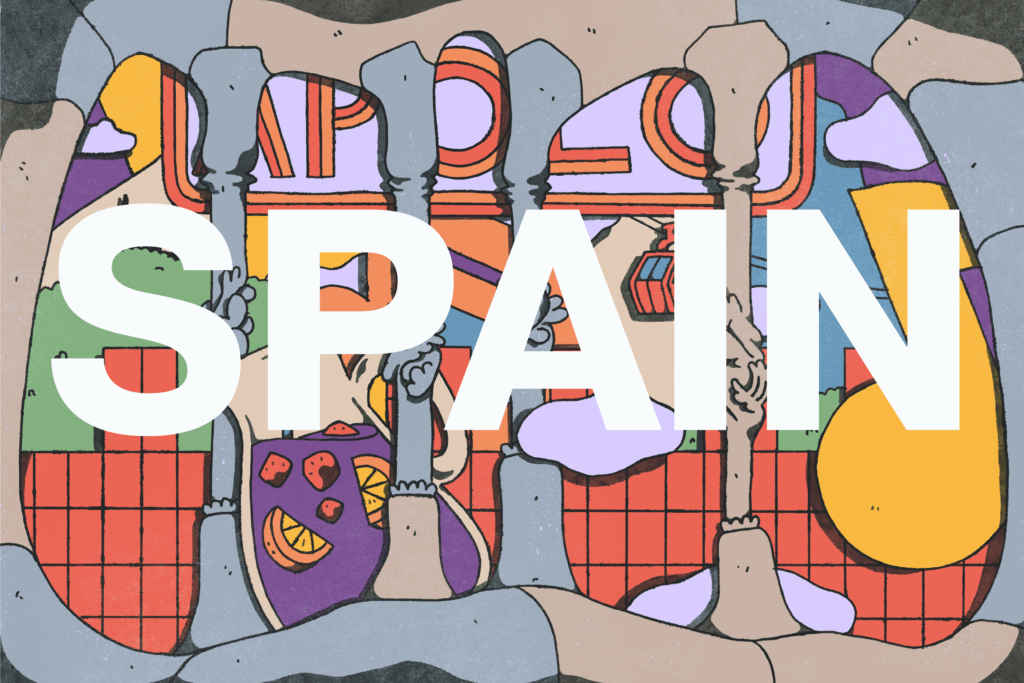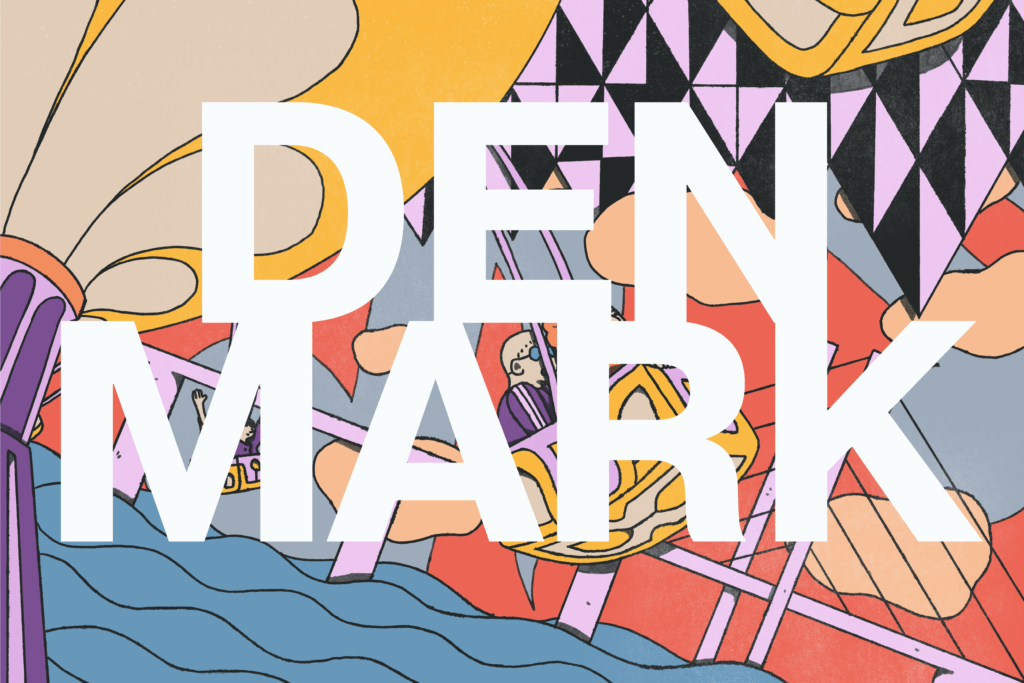Bron/Broen
Copenhagen: where there are more bikes than people, and perhaps more bridges than bikes. Aside from its beautiful parks and riverside beaches, it’s even acceptable to hang out at the cemetery where philosopher Søren Kierkegaard is buried.
You can rely on Copenhagen for progressive, experimental music, with Punk-turned-Techno activists playing in hidden and unconventional spaces (think a dried-out pool or a restored boiler house). In a way, this mentality matches neatly to the Neo-futuristic architecture of the Copenhagen Opera House that floats proudly on the Hønsebroløbet fairway.
“With its 1032 lakes and 443 islands, Denmark is a topographical labyrinth.”
With its 1032 lakes and 443 islands, Denmark is a topographical labyrinth. But getting in is a different story: the only two routes into the country are via Hamburg, Germany, and Malmö, Sweden. The latter consists of crossing an 8 km bridge to get from city to city, which inspired the bilingual detective series Bron/Broen (meaning “bridge” in Swedish and Danish, respectively).
In a quarter named Vesterbro (“West Bridge”), home to Copenhagen’s former red-light district, we find VEGA. Contrary to popular misconception, and in the middle of a neighborhood known for its old meatpacking factory turned bustling food heaven, we’re not talking about a veggie foodbar. Rather, it’s one of the biggest live music venues in the Danish capital.
Talk Danish to Me
Hosting around 350 concerts a year under normal circumstances, VEGA has three rooms ranging from a capacity of 200 up to 1600 people. “We can follow acts from when they are really, really upcoming and playing the small stage, coming back to play the medium-sized one and headlining the main stage a few years later,” Jeppe laughs, “until we say goodbye and wish them luck when they are too big to play here.”
He’s one of three programmers at VEGA, and is seated in the empty concert venue during our video call. The foyer’s long vertical mirrors and wooden walls and ceiling look luxurious and informal at the same time. Built in 1956, Jeppe thinks it’s the perfect setting for live music.
“Every year we organize VEGA’s Udvalgte, or “VEGA’s Selected,” which is a festival for upcoming artists. Many of those acts you’ll see at Roskilde festival and other big festivals the year after. It’s definitely a good start for an artist’s career. It feels so good to play a role in that.”
“Since the Scandinavian languages are closely related, the people seem more willing to engage with each other’s music.”
Luckily, the festival happened before COVID-19 hit the scene. “This year, my favorite acts were a post-punk act called Joyce and a band called Ganger. Both are actually Danish-singing. That’s really big right now. It is making the Danish scene blossom and I also think it’ll pull us through this crisis. We might be able to start earlier, because I think we are less dependent on the international scene.”
This is part of a broader trend. In the Danish festival scene, more and more slots are being taken up by native artists. “It’s a Nordic thing,” Jeppe explains. Since the Scandinavian languages are closely related, the people seem more willing to engage with each other’s music.
“Swedish and Norwegian acts do well in Denmark; Danish acts do well in Norway and are starting to set foot in Sweden, but Swedish music is undoubtedly exported the most to all Nordic countries.”
This resulted in one of many blows to the Danish live music scene after COVID-19 reached Europe. Since Swedish artists are doing well in Denmark, many used to regularly cross the bridge to play a gig. “So did music fans,” Jeppe remarks. “It’s a lot like home, but still different enough for it to feel like a trip.” On the 14th of March, however, Denmark closed its borders completely, cutting the Danes off from the rest of the world until the 27th of June.

“The night Denmark locked down, an American indie-rock band called Big Thief was scheduled to play twice. After the first gig, the Danish Prime Minister went live to announce lockdown. Since we had to cancel the second show, the band went out onto the street in front of the venue to play an acoustic set for the people who were there for the second show. It was really beautiful and a special way to say goodbye to VEGA like that. Everybody was there.”
In late January, another small disaster struck VEGA after a fire started in one of the rooms. Luckily nobody was hurt, but many concerts had to be rescheduled as the room was being revived. “Unknowingly, we were getting ready for COVID at the time,” Jeppe says.
Even though VEGA has been closed for months, only three concerts have been definitively canceled at the time of writing. All others have been postponed. However, if VEGA won’t be allowed to open in September as planned, Jeppe’s schedule will have to change yet again. “Everything I do is hypothetical!” he says, laughing at the absurdity of it all. [update 08-09: VEGA is open and organizing concerts again! This interview was held at the end of July]
“Big Thief went out onto the street in front of the venue to play an acoustic set.”
Recounting his days of playing in a band and touring, Jeppe reminisces: “One night, we played in a German city. The audience was really quiet and we weren’t sure if they liked it. Afterward, they all came to talk to us and we ended up hanging out in front of the venue for the rest of the evening. One night in France, the audience was super energetic and it felt like the best show ever. Ten minutes after the gig, everyone was gone. Playing for different crowds, different cultures, meeting other artists. As an artist you take it all in and then take it back home.”
This is what VEGA is for. “The support of Liveurope enables us to take risks and really serve our audience something new from other countries. Because we have three rooms, when we sell out the big room, it’s okay if we try something out in a smaller room and just see how it goes,” Jeppe says.
“We really play a part in covering different genres and being part of the emergent scene in Denmark and Scandinavia. As we see it, we play an important role in building up new artists, new managers, new promoters.”
Meet TUHAF
One of those emergent acts is TUHAF, a Copenhagen-based band consisting of “Danish and Turkish musicians playing classic Anadolu [Anatolian] rock and other Turkish genres of yesteryear.” This exciting fusion is of value to listeners and band members alike:
“As someone who can sometimes feel that I am neither Turkish nor Danish, I can find identity in the Turkish songs we play as well as the music we create together,” says singer Berrin. Guitarist Kristian adds that growing up in a household that preferred African, Indian, Middle Eastern and Latin music over the billboard charts, “it is a dream come true to be able to draw from this Turkish song treasury and use that as a template to create our own unique style.”
Earlier this year, the band was looking forward to playing abroad in Norway for the first time since they were in Istanbul in 2015. Also, they were lined up to play Roskilde. All those gigs were canceled.
“In light of these unprecedented events we really have no valid reason to complain. We now have a whole bunch of demos ready for the studio. But in the end, there really is nothing like getting out on the road and connecting with the audience.”
“As someone who can sometimes feel that I am neither Turkish nor Danish, I can find identity in the Turkish songs we play as well as the music we create together.”
Because of the active Turkish diaspora spread out across Europe, TUHAF is excited to see more of the continent once COVID permits. “With artists like Gaye Su Akyol and Altin Gün touring worldwide, we know that there’s a large audience for the genre that we consider ourselves a part of. Audiences today are keener than say, ten or twenty years ago, to demand experiences from all over the world rather than a more limited and mainstream profile.”
TUHAF recently played its first gig since the pandemic, along with all necessary safety precautions to slowly ease into a live music renaissance for which the band is very grateful. When asked how it was over text, the answer was “Beyond all expectations 🙂”.
TUHAF recommends:
Our good friends Astrid Engberg, Emma Acs, Byens Lys, AySay and M. Rexen, a Turkish band called Jakuzi, rappers like Benny The Butcher, Conway the Machine and Westside Gunn, Heathe, Collider, De Underjordiske, Seksløber, Papir, Grotto—too many to mention, but this is a treasure trove of awesome bands and artists.






